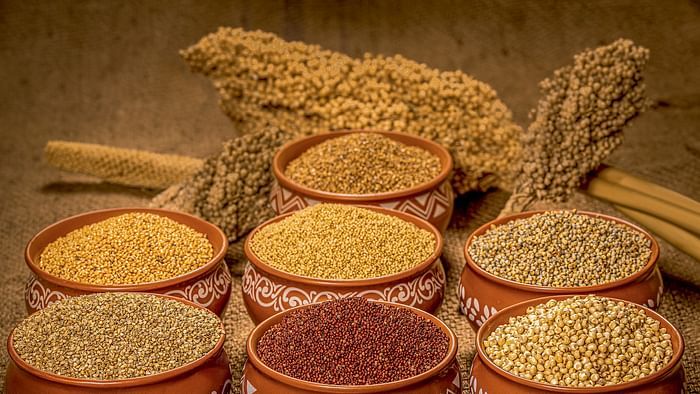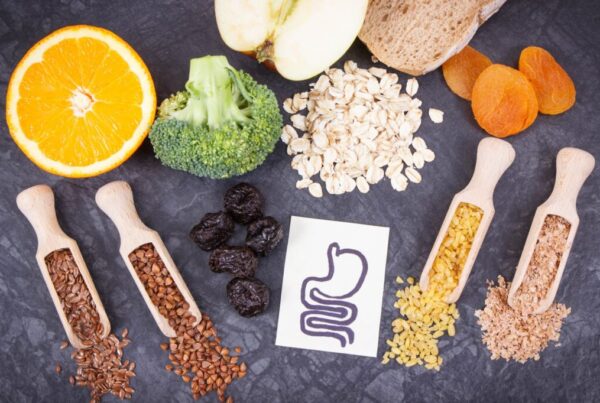Millets are a group of highly nutritious, small-grained cereals that have been consumed for centuries, especially in Asia and Africa. Rich in essential nutrients, millets provide a variety of health benefits that make them an excellent addition to any diet. Here are some of the key health benefits of millet:
1. Rich in Nutrients:
- Vitamins and Minerals: Millets are a good source of essential vitamins such as B-vitamins (like niacin, riboflavin, and folate), and important minerals like calcium, iron, magnesium, phosphorus, and potassium. These nutrients support bone health, boost the immune system, and contribute to overall well-being.
- Antioxidants: Millets are rich in antioxidants like polyphenols and flavonoids, which help fight oxidative stress, protect cells from damage, and reduce the risk of chronic diseases.
2. High in Fiber:
- Millets are naturally high in dietary fiber, which aids digestion and promotes gut health. The fiber in millet helps to regulate bowel movements, prevent constipation, and reduce the risk of digestive disorders.
- Fiber also helps in maintaining healthy cholesterol levels, reducing the risk of cardiovascular diseases, and supporting weight management by providing a feeling of fullness.
3. Supports Weight Loss:
- Due to their high fiber content and complex carbohydrates, millets have a low glycemic index (GI). This means they are digested more slowly, leading to gradual increases in blood sugar levels, which helps in weight management.
- Consuming millet can help control hunger and cravings, preventing overeating, and promoting a feeling of fullness for longer periods.
4. Gluten-Free:
- Millets are naturally gluten-free, making them an excellent choice for people with celiac disease or gluten sensitivity. They offer a nutritious, gluten-free alternative to wheat and other grains, helping people avoid gluten-related digestive issues.
5. Improves Heart Health:
- Millets are heart-healthy grains because they are rich in magnesium, which helps regulate blood pressure and supports proper heart function. Additionally, their high fiber content helps lower cholesterol levels and improves lipid profiles, which reduce the risk of heart disease.
- The antioxidants and anti-inflammatory properties of millets also contribute to a reduction in the risk factors associated with heart disease.
6. Regulates Blood Sugar:
- Millets, especially finger millet (ragi) and pearl millet (bajra), have a low glycemic index, meaning they release sugar slowly into the bloodstream. This helps in managing blood sugar levels and can be particularly beneficial for people with diabetes or those at risk of developing diabetes.
- Regular consumption of millets helps in improving insulin sensitivity and managing blood sugar fluctuations.
7. Supports Bone Health:
- Millets are rich in calcium, phosphorus, and other minerals that contribute to bone strength and health. These nutrients help in maintaining bone density and reducing the risk of bone-related diseases such as osteoporosis.
- Finger millet (ragi), in particular, is an excellent source of calcium, making it ideal for people of all ages, particularly postmenopausal women and the elderly.
8. Boosts Immunity:
- Millets are packed with iron, which is vital for the production of hemoglobin and the proper functioning of the immune system. Adequate iron levels help prevent anemia and boost overall energy levels, which support the body’s ability to fight infections.
- The antioxidants present in millets also play a role in strengthening the immune system and protecting the body against free radical damage.
9. Promotes Healthy Skin and Hair:
- The vitamins and minerals found in millets, especially iron, zinc, and magnesium, support healthy skin and hair. Zinc, for example, promotes tissue growth and repair, which is essential for maintaining healthy skin and hair.
- The antioxidants in millets help protect the skin from oxidative stress and premature aging, keeping the skin youthful and vibrant.
10. Improves Digestive Health:
- The high fiber content in millets helps in maintaining regular bowel movements and preventing constipation. Fiber also aids in the growth of beneficial gut bacteria, promoting a healthy microbiome and improving overall digestive health.
- Millets are also easy to digest, making them a suitable food choice for people with sensitive stomachs or digestive issues.
11. Helps in Managing Cholesterol:
- Millets contain phytochemicals like phytates and saponins, which have been shown to lower cholesterol levels. Regular consumption of millets can contribute to better lipid profiles, lowering bad cholesterol (LDL) levels while increasing good cholesterol (HDL).
12. Promotes Mental Health:
- Millets, especially finger millet (ragi), are rich in tryptophan, an amino acid that helps in the production of serotonin, a neurotransmitter that regulates mood and promotes feelings of well-being. This makes millets beneficial for improving mood and reducing the symptoms of depression and anxiety.
Conclusion:
Millets are a powerhouse of nutrition, offering a wide range of health benefits that support overall well-being. They are not only a rich source of essential nutrients but also promote heart health, digestive health, weight management, and blood sugar regulation. Including millets in your diet can be a great way to improve health, especially for those seeking a gluten-free, nutrient-dense alternative to more common grains like rice and wheat.




